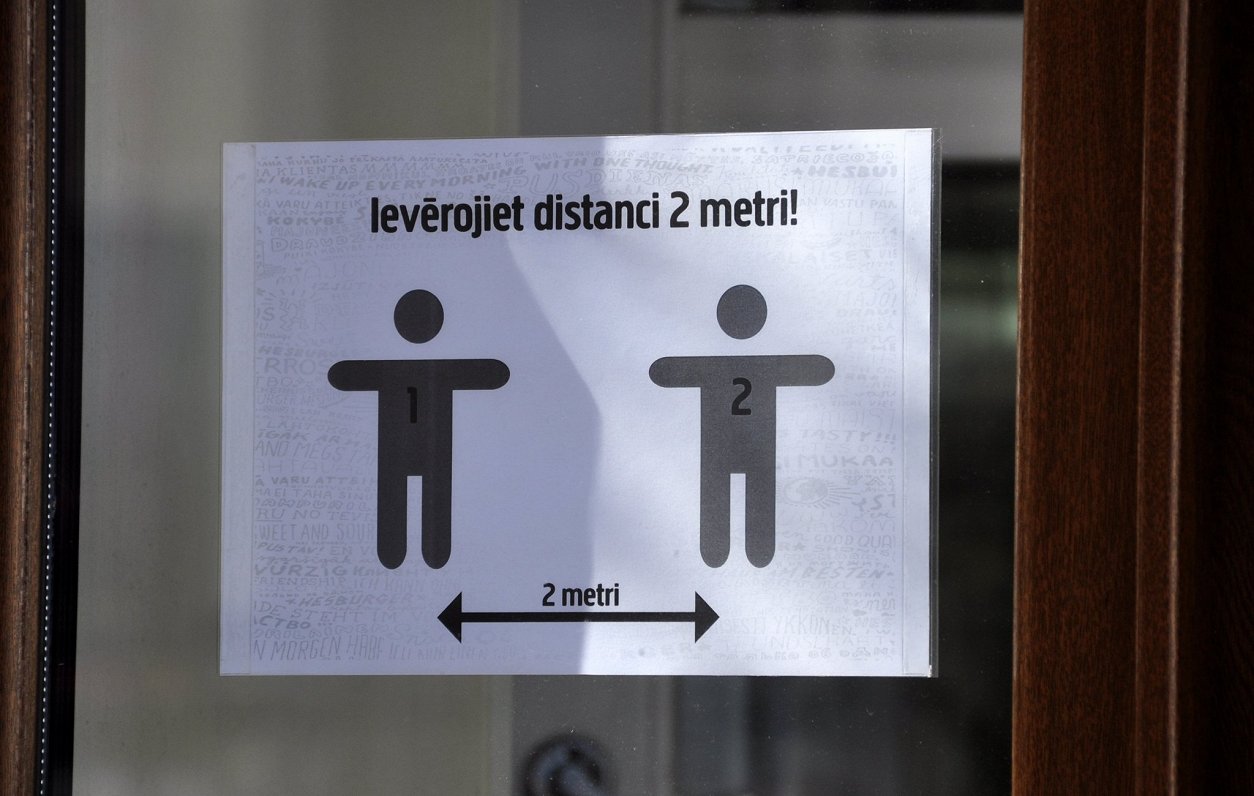“Social, or physical distancing is crucial in terms of disease prevention, and the scale at which it's currently implemented is bearing fruit. There are no indications that the measures should be increased in regards to work closures, facility closures or increased restrictions,” said Perevoščikovs.
He said the main area of focus should be on the health of healthcare workers, as the health of doctors and nurses has a direct impact on the health of patients. Although there are less cases imported from abroad, we're still seeing local transmission. “Every tenth case is either a medical worker or healthcare worker, or a patient who was infected at a healthcare facility,” said the director.
The overall situation has seen a slight decline in the number of new cases, even though weekly testing has remained stable at around 7,000 tests. Last week there were 187 confirmed cases of Covid-19 in Latvia, while the week before there were 217 cases.
“The percentage of positive tests has also decreased at such a high level of testing - from 3% to 2.7%. From the data we can infer that stabilization is happening,” said Perevoščikovs.
In other European countries that have already had emergency measures implemented for a while there's also hope that the situation is becoming more stable. Infection rates are increasing, but not as rapidly as during the previous few weeks.
As previously reported, to mitigate the risks of further spread of Covid-19 among the population, the Latvian government adopted stricter regulations on March 29 to limit gatherings of people in private and public events, which it said were "in line with the epidemiological situation."
The new restrictions on physical proximity apply to public indoor and outdoor activities and establish the rule that no more than two people may meet and that they must maintain a distance from each other of at least two meters.
Any public events, as well as meetings, marches and pickets are prohibited. Indoor sports and religious activities are also prohibited. All encounters in public spaces - indoor, outdoor and communal areas - must comply with the two-meter distancing rule as well.
The only exceptions to the two-person, two-meter rule are persons living in the same household or their parents and their minor children if they do not live in the same household. More than two persons may also meet in one place if it is an essential part of their workplace duties.
Supplies of medicines, medical devices, personal protective equipment and disinfectants will primarily have to meet national needs. At the request of the SPKC, the National Police will be able to request information from electronic communications merchants on specific individuals who may have the status of infected or contact persons to conduct epidemiological investigations and verify the accuracy of the information provided by the person - in other words, quarantine-breakers will in theory be easier to trace.
Prime Minister Krišjānis Kariņš said the restrictions are the result of advice received from epidemiologists.
























